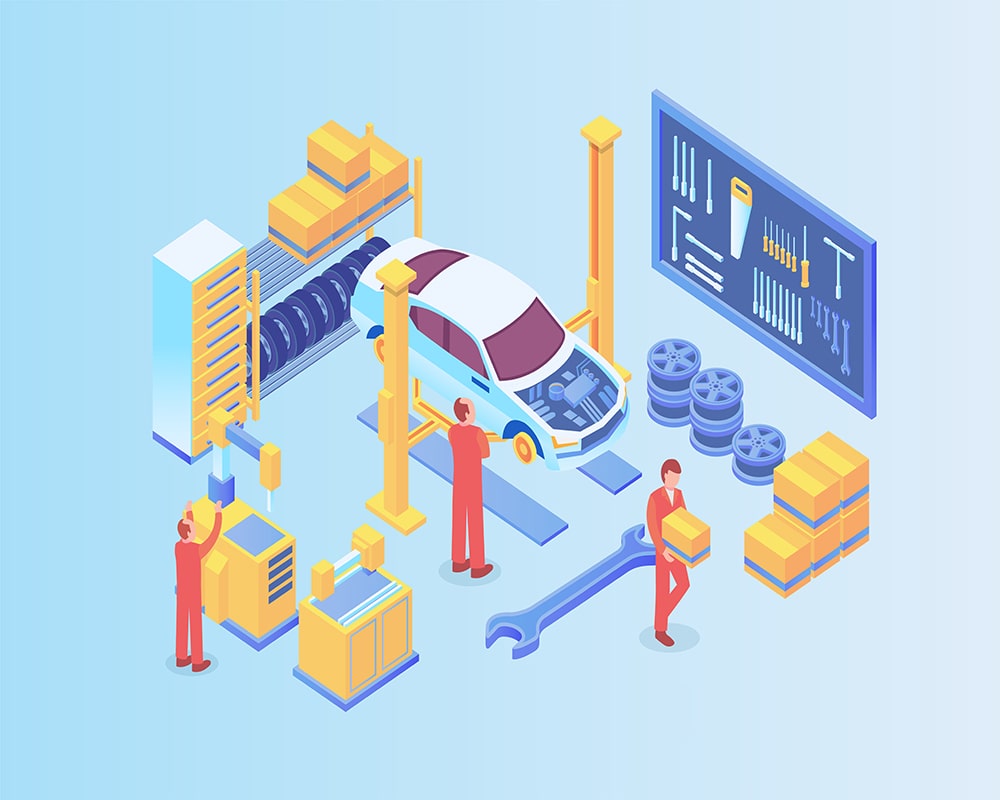November 22, 2021 By: Tanuj Singh
Businesses across sectors are evolving and shifting to digitally-enabled agile strategies. The automotive industry, like any demand-driven products and services domain, is embracing disruptive innovation. Leaps in communication tech are powering connected cars; while sustainability and clean-living concepts are driving the manufacture and marketization of electric vehicles. Factors like e-commerce are redefining the relevance of customer retention and value creation in the automotive aftermarket, endorsing end-to-end digitalization in business operations.
Challenges to Reckon
The rapid evolution and proliferation of smart devices and internet connectivity has introduced customers to multiple, digitally-enabled touchpoints to compare products and prices, connect with customer service, sales staff and so forth. More customers are turning to contactless, online facilities from the aftermarket’s realm as well. To analyze and predict needs from an informed customer’s perspectives, and map it to the actual scale of demand through agile, digitally-enabled operations and smart selling approaches are becoming imperative to successful automotive aftermarket businesses. Given this focus on customer-centricity, the automotive aftermarkets industry will need to address several challenges such as:
- Updating the Legacy Technology Network: Keeping up with the digital shift also means migration from a “patchwork” of obsolete technologies and legacy software to dynamic next-gen tech innovations and the adoption of lean, agile, and optimized technologies. Another imminent challenge faced by aftermarket businesses is to harmonize designing and building innovative, futuristic offerings with evolving demands, shift to lean manufacturing approaches, and associated cost implications.
- Investing for the Future: Given that businesses have seen growth challenges in the last 18-20 months, prudent investments to enhance efficiency will be required. Organizations need to invest in technologies that improve supply chain visibility, enhance efficiency in the sales process, and provide superior customer experience.
- Preparing for Growth: Recent research estimates the automotive aftermarket revenues to reach $800 billion by 2027. Digitization across the value chain, emerging markets, and changing customer preferences compel the industry players to gear up for the future.
Future Trends in the Automotive Aftermarket Space
The good news is that some of these challenges are also opening up opportunities for growth and disruptive innovation. This growth potential is expected to reshape and re-align the automotive aftermarket ecosystem. Customer preferences are re-shaping the market, driven by the increasing adoption of technology, mobility and e-commerce. With the widespread adoption of disruptive technologies that include artificial intelligence (AI), machine learning (ML), robotic process automation, and the Internet of Things (IoT), the market is poised for a paradigm shift. With big data and analytics, accessibility to data-driven insights has enhanced transparency and efficiency across the value chain.
A significant change in the market is emerging from the next generation vehicles – electric, autonomous, connected vehicles. The use of technology in addition to the focus on green technology, efficiency, predictive maintenance, reduction in carbon emissions, and new techs like Vehicle to Everything (V2X) networks are some of the areas that can be exciting as well as challenging for the players in this industry.
The restrictions imposed during the lockdowns compelled auto and related manufacturers to bolster their digitalization initiatives and grow their online e-commerce presence, for not just purchase of vehicles, but also auto parts. Research indicates that the online vehicle retail, aftersales, and services market is expected to grow 5X and surpass $600 billion by 2025.
In this context, aftermarket business acceleration necessitates digitalization with agility, efficiency, speed, and democratization. Supply chain management and manufacturing processes will have to be reverse-engineered to match real-time industry trends and customer needs. Analytics-driven ideation and operations strategy in alignment with demand and preference will enable competitive offerings and first-to-market advantages.
Be Poised for Transformation
Several studies reveal that in the next 10-15 years, the automotive market is poised for transformation like no other industry has witnessed before. And technology is at the front and centre of this transformation. Safety, environment-friendly, low cost, fewer emissions – are only some of the concepts that the industry is working towards and ensuring sustainable growth as well.
From intelligent business situation assessment to implementation and support for process simplification and automation requirements across business processes and departments, JK Tech is equipped to deliver state-of-art, services and solutions to automotive aftermarket businesses.
As a global system integrator partner for QAD, we understand the urgency and imminence of digital technology adoption in the automotive aftermarket space. We leverage our expertise in digital services including data analytics, intelligent automation and cloud to provide responsive, transformative solutions to enterprises in the automotive aftermarket domain.
Are you ready to ride the revolution with us? If yes, connect now.



